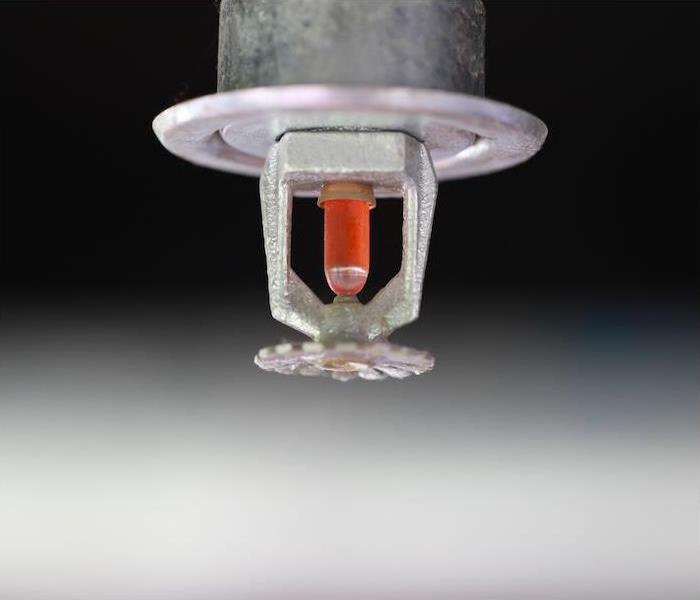Fire Sprinkler Myths Debunked
7/20/2021 (Permalink)
 If your home should sustain damage from a fire of any kind, SERVPRO of Fayette/S. Fulton Counties is here to help.
If your home should sustain damage from a fire of any kind, SERVPRO of Fayette/S. Fulton Counties is here to help.
Most of the experience many of us have with fire is fiction—we have a mental image of what happens when a sprinkler system goes off because of what we’ve seen on TV shows or in movies, or even what we’ve read in books. But these portrayals are for story effect, and often don’t reflect reality.
In fact, much of what you may presume about the operation and impact may not be accurate. Let’s debunk some myths about sprinkler systems:
“I don’t need a sprinkler system.”
First: Your home smoke alarms are essential, but they can only alert you. They are powerless to stop a fire. Sprinklers both detect and act, saving lives and property quickly.
Second: Yes, the fire department will come, but in the nine to 12 minutes they need to get to your home, a sprinkler system may have already been able to do the necessary work to contain or put out the fire. Without a sprinkler, you’re looking at more damage from the fire, the smoke, and the water it takes to quench the spreading flames.
“They’re not worth the damage they cause.”
Many people assume (because of movie portrayals) that once a sprinkler system is activated, the entire system is triggered and water instantly sprays everywhere. In truth, the system operates in independent zones, and only the sprinkler closest to the detected fire will activate. And this is most often all that’s necessary: Multiple sprinkler heads are only needed 16% of the time in home fires in which sprinklers are triggered.
And sprinklers cause much less water damage than having the fire department hose your place down for an hour or more. Compare the 10–26 gallons per minute of a sprinkler system to up to a fire hydrant soaking your home with multiplied hundreds, even thousands of gallons per minute.
“They can’t be that effective.”
They really can. The risk of dying in a home fire is reduced by 80% when sprinklers are present, and the average property loss from a home fire with active sprinklers is cut by about 70%.
“Sprinklers are a disaster of their own waiting to happen.”
Sprinklers can occasionally leak, but that situation is less likely and less severe than a typical plumbing problem you’d encounter at home. And like any water pipes, sprinklers are susceptible to freezing temperatures, but installers are held to standards that mandate that sprinklers be safely and properly installed in regions where freezing is common.
Overall, the value and loss prevention of sprinkler systems make them an appealing and potentially lifesaving investment for your home.
If your home should sustain damage from a fire of any kind, we’re here to help. Get in touch today to get SERVPRO of Fayette/S. Fulton Counties on your side.




 24/7 Emergency Service
24/7 Emergency Service